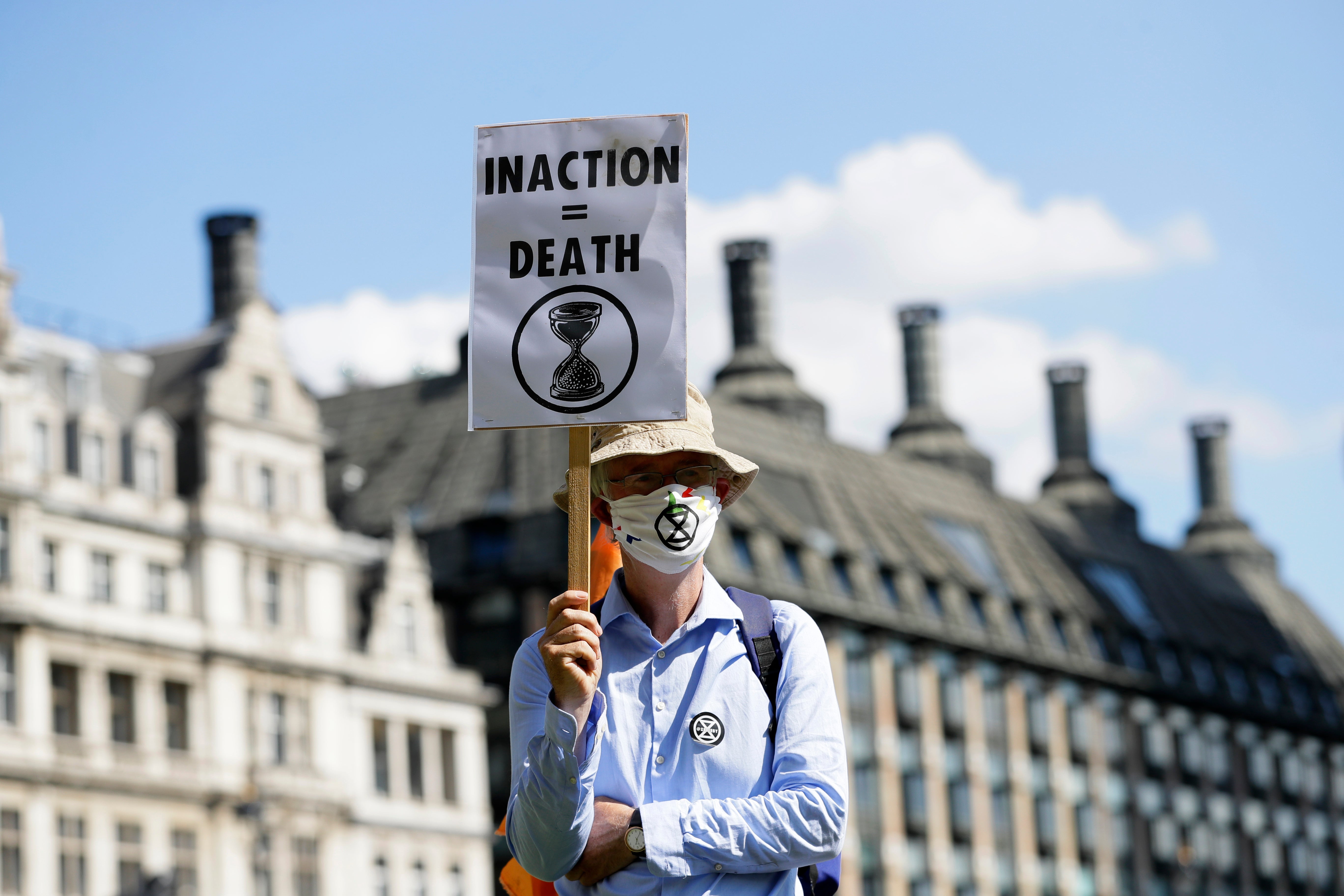UK toughens its carbon target before Biden climate summit
The U.K. government has pledged to reduce carbon emissions by more than three-quarters of their 1990 levels by 2035

Your support helps us to tell the story
From reproductive rights to climate change to Big Tech, The Independent is on the ground when the story is developing. Whether it's investigating the financials of Elon Musk's pro-Trump PAC or producing our latest documentary, 'The A Word', which shines a light on the American women fighting for reproductive rights, we know how important it is to parse out the facts from the messaging.
At such a critical moment in US history, we need reporters on the ground. Your donation allows us to keep sending journalists to speak to both sides of the story.
The Independent is trusted by Americans across the entire political spectrum. And unlike many other quality news outlets, we choose not to lock Americans out of our reporting and analysis with paywalls. We believe quality journalism should be available to everyone, paid for by those who can afford it.
Your support makes all the difference.The U.K. government on Tuesday set itself a tough new climate target, pledging to cut carbon emissions by more than three-quarters of their 1990 levels by 2035 while closing a loophole that had left much of the pollution from airplanes and ships out of the tally.
The goal was announced ahead of a virtual climate summit that U.S. President Joe Biden plans to host on Thursday.
Environmental activists welcomed the decision to include for the first time Britain's share of emissions from international aviation and shipping in the new carbon-cutting goal. The government says its plan will put the U.K. on course to meet its target of reaching net zero carbon emissions by 2050.
The new target will be enshrined in law, with legislation introduced in Parliament on Wednesday and expected to be on the statute books by summer.
“The U.K. will be home to pioneering businesses, new technologies and green innovation as we make progress to net zero emissions, laying the foundations for decades of economic growth in a way that creates thousands of jobs,” British Prime Minister Boris Johnson said.
Johnson, who is set to host a major global climate summit, known as COP26, in Glasgow in November, said he hoped other world leaders would “follow our lead and match our ambition.”
Britain previously pledged to slash emissions by 68% by 2030, one of the most ambitious targets among developed nations.
The government’s Climate Change Committee recommended the 2035 target last year, and said achieving it would require more electric vehicles, expanded wind power capacity and a reduction in meat and dairy consumption.
Rebecca Newsom of Greenpeace U.K. welcomed the commitment but said “targets are much easier to set than they are to meet, so the hard work begins now.”
The U.N.'s top climate official also praised the new British target and the decision to factor emissions from transportation into the accounting.
“Shipping and aviation are two critical sectors that need to be addressed,” Patricia Espinosa executive secretary of the United Nations Framework Convention on Climate Change, told The Associated Press. “I hope this kind of very bold and courageous step forward can be followed” by others.
The United States, the world's second-biggest polluter after China, is preparing to announce its new target for cutting greenhouse gas emissions by 2030.
One figure that has been widely proposed as both ambitious and politically realistic ahead of the virtual climate summit hosted by Biden is for the U.S. to halve its emissions compared to 2005. Compared to the baseline of 1990 used by most other nations, that would amount to a 41% cut, according to calculations by the data analytics firm Rhodium Group.
The European Union, which Britain left last year, hopes to finalize a binding climate law this week. Governments agreed last year to cut the 27-nation bloc's emissions by at least 55% over the next decade compared to 1990, but lawmakers in the European Parliament are demanding a higher target of 60% and the exclusion of natural carbon sinks, such as forest, from the equation.
Andrew Murphy, aviation director at the activist group Transport & Environment, said the EU should also adopt Britain's practice of including emissions from planes and ships in its climate target.
“If the U.K., with an economy so reliant on aviation and shipping, can do this, then Europe has no excuses,” he said.
The EU's current target is for a reduction of 40% by 2030.
___
Jordans contributed from Berlin.